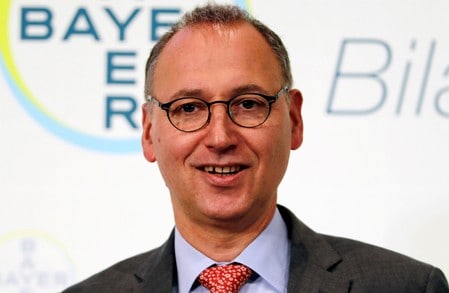By Jim Christie
SAN FRANCISCO (Reuters) – A lawyer for a man who sued Bayer AG unit Monsanto after developing cancer on Wednesday told a jury about the company’s alleged efforts to influence scientists and regulators, a day after the jury found Bayer’s glyphosate-based weed killer Roundup to have caused the man’s disease.
The jury in San Francisco federal court on Tuesday found Roundup to be a “substantial factor” in causing California resident Edwin Hardeman’s non-Hodgkin’s lymphoma, but did not find Bayer liable.
Liability and potential damages will now be decided by the same jury in a second trial phase that began on Wednesday after the initial phase focused on scientific evidence alone.
Aimee Wagstaff, one of Hardeman’s lawyers, said Monsanto influenced the science around Roundup through its close links to regulators, including a “cozy” relationship with the U.S. Environmental Protection Agency, which has not required a cancer risk warning for the weed killer.
Wagstaff also claimed Monsanto ghost-wrote scientific studies to influence regulatory reviews.
Bayer denies allegations that Roundup or glyphosate cause cancer, saying decades of independent scientific studies have shown the chemical, one of the most widely used weed killers, to be safe for human use.
But the company’s share price fell more than 12 percent on Wednesday after Tuesday’s jury decision, later recovering slightly. Shares closed down 9.6 percent at 63 euros ($71.53).
The trial, which began on Feb. 25, is also a test case for a future litigation. More than 760 of the 11,200 Roundup cases nationwide are consolidated in the federal court in San Francisco that is hearing Hardeman’s case.
Hardeman’s case marks the second U.S. Roundup trial after a jury in a similar case in August awarded $289 million in damages. That award was later reduced to $78 million and is on appeal.
Bayer in a statement on Tuesday said it was disappointed with the jury’s decision.
“We are confident the evidence in phase two will show that Monsanto’s conduct has been appropriate and the company should not be liable for Mr. Hardeman’s cancer,” the company said.
During the second trial phase, the jury will be asked to decide whether Roundup was defectively designed by failing to perform as safely as an ordinary consumer would expect, and whether Bayer failed to warn consumers of potential health risks.
Bayer in response can introduce evidence of regulatory assessments concluding glyphosate to be safe.
The U.S. EPA, the European Chemicals Agency and other regulators have found that glyphosate is not likely carcinogenic to humans. The World Health Organization’s cancer arm in 2015 reached a different conclusion, classifying glyphosate as “probably carcinogenic to humans.”
Brian Stekloff, a lawyer for Bayer, in his opening statement on Wednesday said Wagstaff had presented the jury with “cherry-picked evidence” and did not tell the whole story.
“It’s not just regulators,” Stekloff said. “It’s also other groups of scientists that have found no carcinogicity.”
($1 = 0.8807 euro)
(Reporting by Jim Christie in San Francisco; writing by Tina Bellon in New York; editing by Bill Berkrot)



